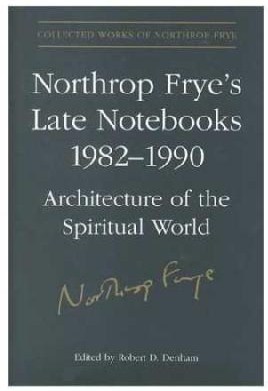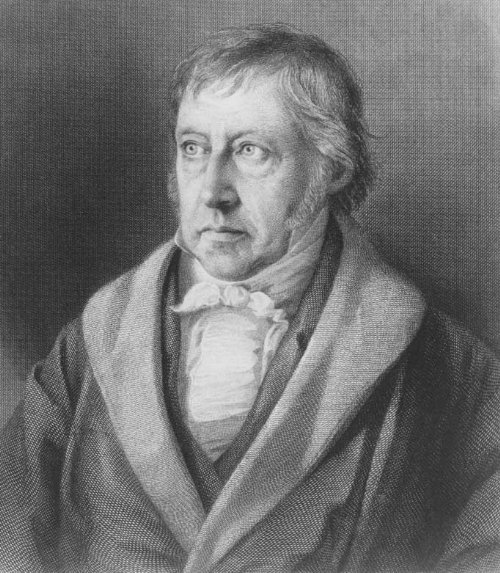Hegel is the central philosophical figure in Words with Power. In one of his late notebooks, Frye writes, “If Hegel had written his Phenomenology in mythos-language instead of in logos-language a lot of my work would be done for me. The identification of Substance with Subject-Spirit in the Preface is mythically the central issue of the Reformation, overthrowing the sacramental ‘spiritual substance’ of the Eucharist & replacing it with the growing Spirit that takes over the Subject.” (Late Notebooks, CW 5, 192). Later he writes, “The rush of ideas I get from Hegel’s Phenomenology is so tremendous I can hardly keep up with it.” (Late Notebooks, CW 6, 631)
The extent to which Hegel enters into Frye’s thinking as he was writing Words with Power and The Double Vision can be seen in the following selections from the Late Notebooks:
I suppose the whole book turns on the thesis that the spirit is substantial: it’s the realizing of primary concern out of the language (Word) of primary mythology. Only the total Word can make the spirit substantial. Everything else, including Marx’s critique of Hegel, is ideological. I don’t want to become a conservative Hegelian, and my goal is not absolute knowledge, whatever that is, but the Word & Spirit set free by each other and united in one substance with the Other detached from Nature and identified as the Father. This doesn’t subordinate the female: it wakens and emancipates her, Eros Regained in short. Jesus’ establishing of the identity of the other as Father is what makes him the definitive prophet. (CW 5, 9)
Perhaps I’ve been overlooking the narrative of, first, heaven and earth locked together in a sexual union, second, an Oedipal Son or Logos pushing them apart to form the world of consciousness-creation, third, this Logos growing, like the Begriff in Hegel, until Heaven and Earth reach the Tao balance as Father and Spirit. (ibid., 10)
If I’m right about the Word growing like the Begriff in Hegel [previous entry], the Phenomenology is an Odyssey as well as a Purgatorio climb. The Odyssey is the cycle redeemed, beginning & ending at home; the Purgatorio is the climb to polarization. (ibid., 11)
Hegel himself calls the Ph. [Phenomenology] a ladder (II.2.5). (ibid., 18)
Forms of spiritual growth: the father-soul and the mother-body (dying to) bring forth the spirit-child. I think this is alchemic. Odyssey pattern: the old beggar, least likely to succeed, growing in reverse of ordinary aging until he becomes not just master of the house but the body of the house. Hegel’s Begriff, the infant exposed and abandoned by the common-sense world, turning out to be the Prospero of the whole show. (ibid., 18)
I’ve often said that Hegel’s Ph G [Phänomenologie des Geistes] interests me deeply in itself, but not as a preface to Hegel’s system. This is linked on my part with my feeling that Moses was the only person who ever saw the Promised Land. The system is only a Prussian Canaan. (ibid., 19)

